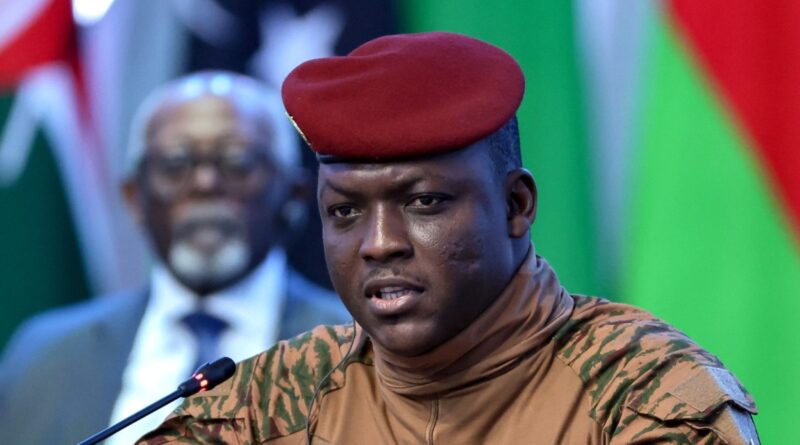Burkina Faso: Burkina Faso Amnesty Law Is ‘Risky Decision’ Say Analysts
London — In late December, Burkina Faso passed a law granting amnesty to soldiers accused of plotting a failed 2015 military coup. Analysts say current leader Ibrahim Traore, who took power in a coup himself and has since dodged several reported coup and assassination attempts, could be setting a dangerous precedent.
In late December, Burkina Faso passed a law granting amnesty to soldiers accused of a failed 2015 military coup, against then-president Michel Kafando.
The country’s current military dictator, Ibrahim Traore, who is widely understood to be behind the amnesty, has himself faced several alleged coup attempts from within the military since he took power more than two years ago, according to state media.
Beverly Ochieng with the Washington-based Center for Strategic and International Studies’ Africa Program, says the move could set a precedent for anyone wishing to oust Traore.
“It’s true, Traore’s decision is risky and it might set a double standard, especially considering the fact that he himself came to power through a military coup,” said Ochieng. “Even if it doesn’t reduce the risk of further coup attempts or undermining of legal processes, he’s still able to save face and then sustain a semblance of popularity and unity.”
But why has Traore made a move that could encourage further coup attempts?
Political scientist Geoffroy Julien Kouao suggests a strategic rationale behind the amnesty.
He says the experience of the pardoned coup plotters could be an asset in the country’s fight against militant groups linked to Islamic State and al-Qaida.
He says, their military and diplomatic expertise could be useful to the current government in their fight against terrorism. Personalities like General Gilbert Diendéré and Djibril Bassolé have great military and diplomatic experience that Ibrahim Traore wants to exploit.
General Diendéré was a prominent figure in the Burkinabe military, serving as the chief of staff of the armed forces. Bassolé, a former minister of foreign affairs, was also implicated in the coup attempt and was subsequently arrested and charged with treason.
Ochieng suggests it could be a defensive move on the part of Traore. She says the previous coup attempts against Traore were likely due to tension with senior members of the military, which Traore is seeking to calm by releasing their allies.

Sign up for free AllAfrica Newsletters
Get the latest in African news delivered straight to your inbox
“Burkina Faso is still politically fragile under Traore,” she said. “On the one hand, the numerous allegations of attempted coups against his government might be a means of playing up threats and also exerting more power, but they’re also a reflection of sustained opposition towards his leadership.”
Burkina Faso has been battling a growing insurgency since 2015, with violence spreading across the country. The conflict has led to thousands of deaths, widespread displacement, and one of the world’s worst humanitarian crises.
Data from the Armed Conflict Location and Event Data Project show terrorist violence has only gotten worse during Traore’s time in power.

